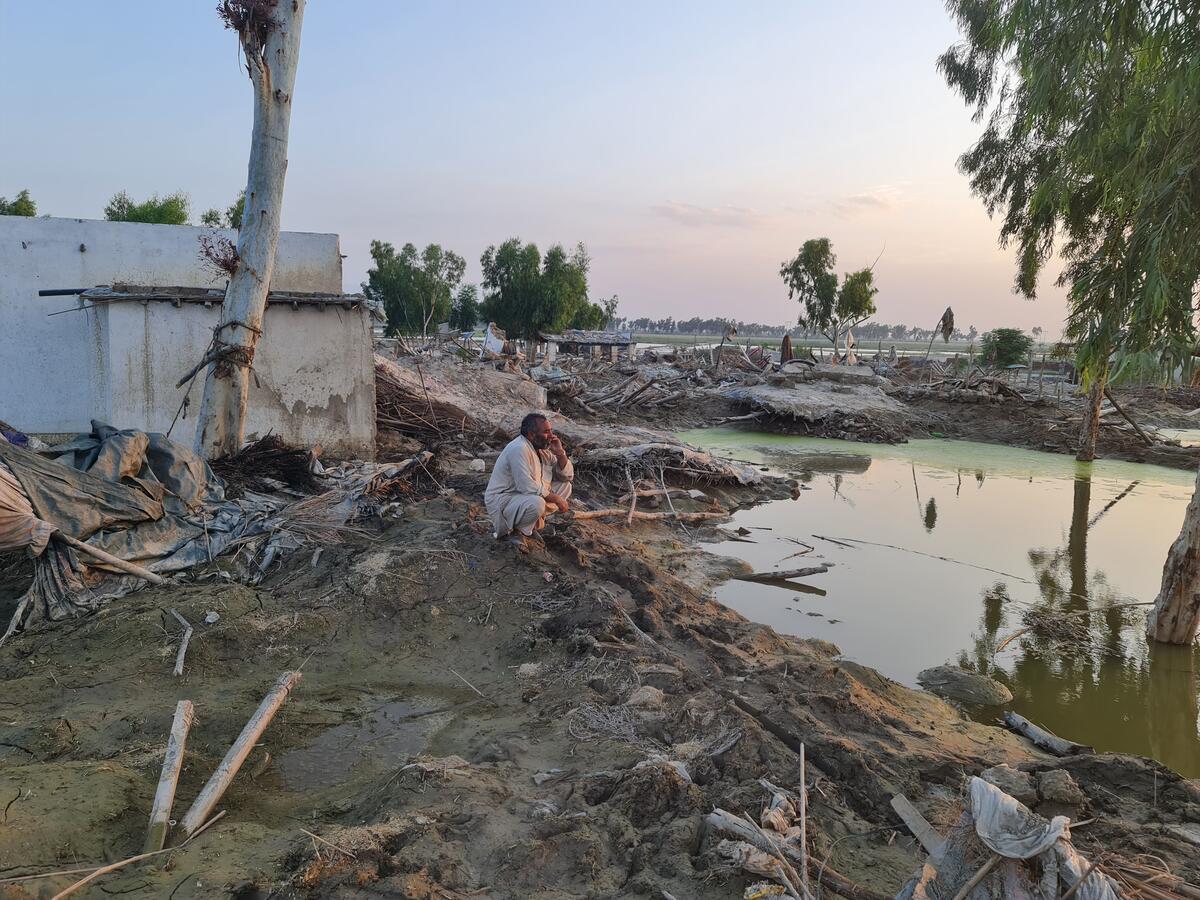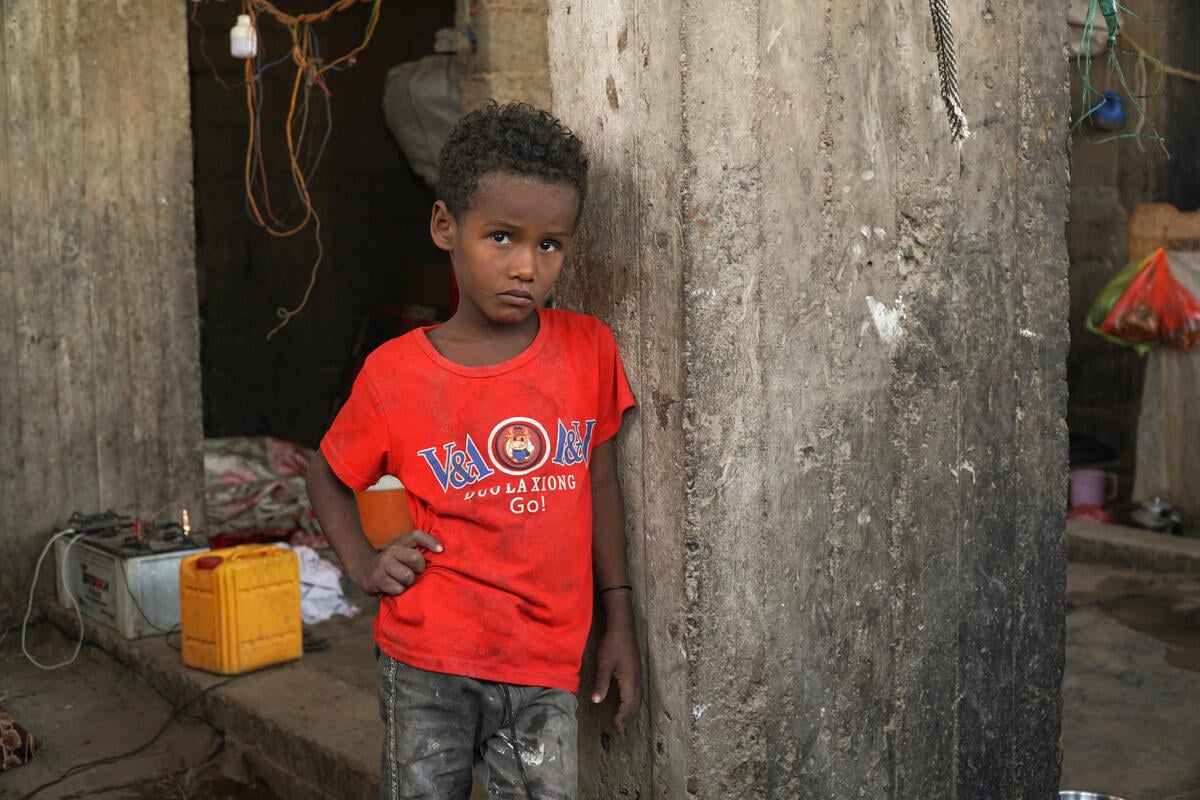UNHCR issues new appeals for Sudan operations; insecurity forces cut in Darfur budget
UNHCR issues new appeals for Sudan operations; insecurity forces cut in Darfur budget

GENEVA, March 9 (UNHCR) - Citing deteriorating security that has severely limited its operations and access in Sudan's strife-torn Darfur region, the UN refugee agency today announced a 44 percent reduction in its 2006 programme budget for the region.
In a revised supplementary appeal for Darfur for 2006, UNHCR notes that the steady erosion of security in recent months in much of Darfur prompted the United Nations in January to impose tighter "Phase IV" restrictions on staff and operations in several areas. A number of UNHCR staff were relocated out of the affected areas and the movements of those remaining are now severely limited.
"In view of the limited access to some areas and a reduced number of field staff, UNHCR has been compelled to downsize its operation in Darfur by almost half, while attempting to keep a certain level of flexibility," the appeal document says.
"The impact of the change ... on UNHCR operations has been significant. The number of UNHCR staff in the Phase IV area was reduced in order to keep UNHCR's presence in line with the staff ceiling established by the UN system. While many staff have been relocated, with some sent temporarily to other operations in Sudan, others have been kept in Phase III areas of Darfur in order to maintain a capacity to adapt to the changing situation and respond to any emergencies or large-scale influxes from Chad."
UNHCR's revised budget for Darfur in 2006 is now reduced to $18.5 million, down from the previously planned $33 million. The appeal is focused primarily on work in those areas of West Darfur where the agency remains operational. The appeal notes that if the situation changes during the course of the year, UNHCR will immediately revise its programme and issue a new appeal accordingly.
Despite a ceasefire signed in April 2004 and two peace protocols in November of that year, the 3-year-old crisis continues unabated. There are currently more than 200,000 Sudanese refugees in 12 UNHCR-run camps in neighbouring Chad, and more than 1.7 million persons internally displaced within Darfur itself - 657,000 of them in West Darfur where UNHCR has concentrated its work.
"Armed clashes, banditry and attacks targeting civilians, including internally displaced people, continue to occur with increasing frequency," the appeal says. "Humanitarian convoys are also targeted. Access to a large part of West Darfur is now restricted. Interventions and assistance become extremely difficult when direct access to beneficiaries is limited. Lack of security and confidence in their own government are also the main obstacles for IDPs [internally displaced persons] and refugees to return to their villages of origin."
The security situation remains volatile despite peace talks in Abuja and the deployment of over 7,000 African Union troops, the appeal says. "A recent military build-up on either side of the [Sudan-Chad] border is further escalating tensions and increasing the risk of open conflict," it says. "New arrivals of Chadian asylum seekers, together with Sudanese displaced, have recently been reported at Galu and Azaza in West Darfur, near the border. Their number is still unclear, and UNHCR and partners are assessing the situation."
UNHCR established an office in El Geneina, West Darfur, in June 2004, and in Nyala, South Darfur, the following month. Two additional field offices were opened in West Darfur and another one is expected to open soon. But four other offices planned for 2006 have now been put on hold.
The agency's roving protection teams conducted more than 150 field missions in Darfur in 2005. In addition to its protection responsibilities, UNHCR also coordinates camp management in West Darfur; maintains 33 women's centres in various settlements for internally displaced people; monitors return movements; provides counselling and legal assistance to the displaced; and carries out other assistance and protection activities.
UNHCR also issued a $65.8 million supplementary appeal today for its programmes in southern Sudan and Khartoum and Kassala states.
The south Sudan appeal seeks $63.2 million for the agency's return and reintegration operation on behalf of about half a million Sudanese refugees in seven neighbouring countries as well as some of the millions of internally displaced people from the south. Another $2.6 million is being sought for protection activities for IDPs living in makeshift camps around the capital, Khartoum, as well as in Kassala state in eastern Sudan.
A Jan. 9, 2005, peace accord between the Sudanese government and the Sudanese People's Liberation Army/Movement ended more than two decades of war in the south and paved the way for the repatriation of millions of IDPs and refugees. But much of the south is devastated, with little or no infrastructure. Much of the countryside is littered with landmines. Even so, large numbers of south Sudanese in neighbouring countries have indicated they want to go home. Returns began on a small scale in 2005 and are expected to continue this year, with some 58,000 refugees now preparing to go home in the first half of this year.
The latest appeal notes, however, that security remains a concern in many parts of the south because of inter-ethnic tensions and rivalries between various armed groups.








